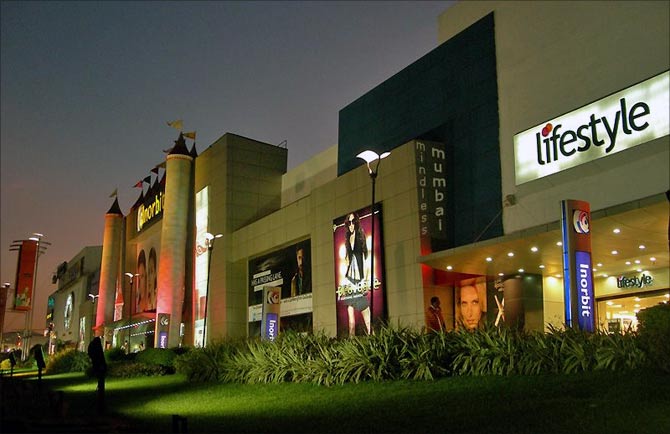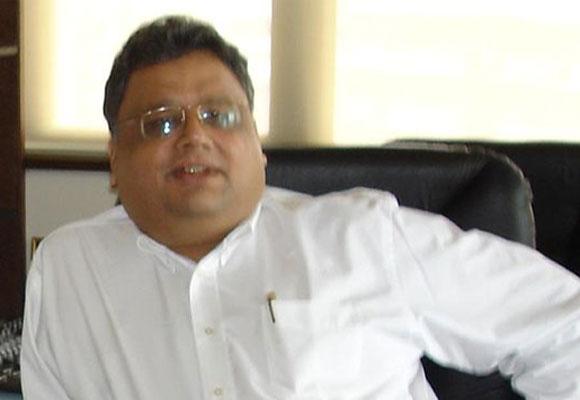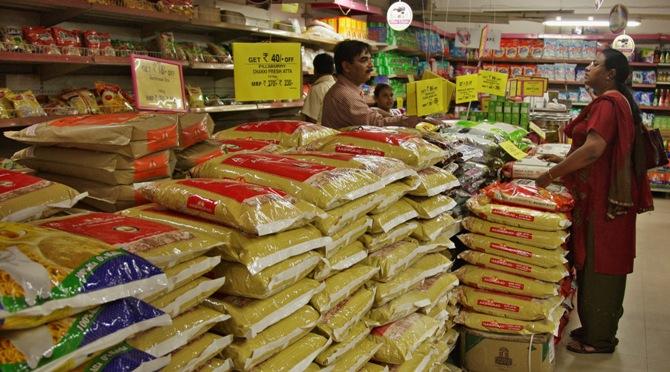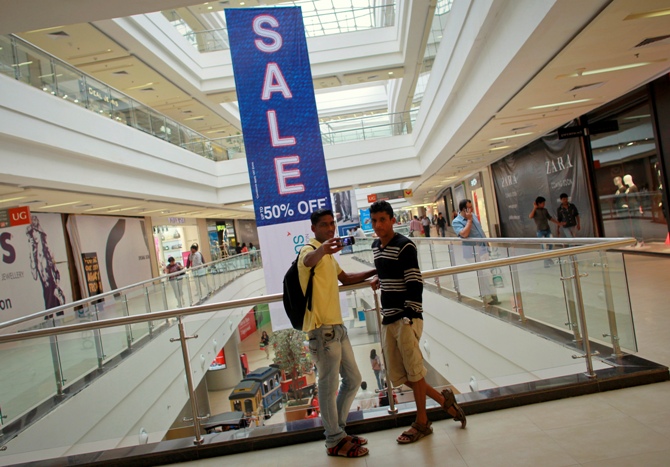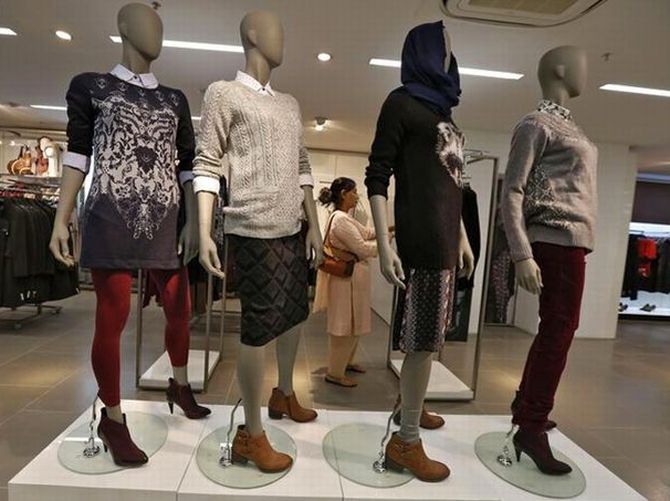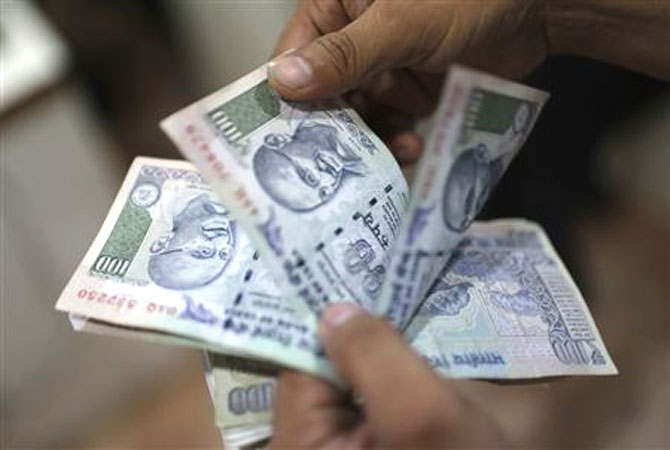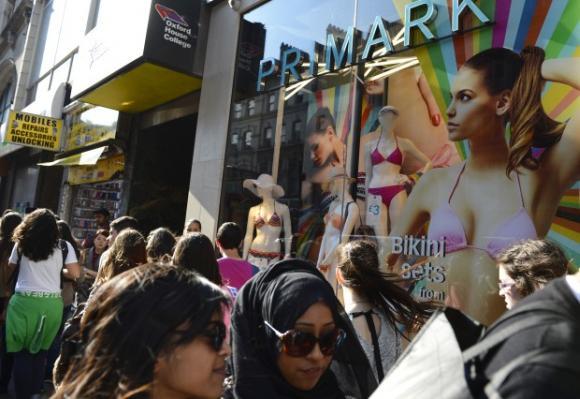 | « Back to article | Print this article |
Why Jhunjhunwala is betting high on retail
Addressing chief executives from retail and consumer companies at the Confederation of Indian Industry’s retail &FMCG summit on Tuesday, Jhunjhunwala said retail stocks hadn’t done well over the past decade but he expected this year to be different, as higher income levels would ensure better growth for these companies.
Looking ahead, he said he remained optimistic of the government's effort to put the economy back on track.
Once there is a semblance of growth, funds should be pouring money into the retail sector, he said.
Jhunjhunwala said companies such as Titan and Rallis India were perfectly positioned to ride a wave of growth in the Indian consumer industry.
Click NEXT to read further. . .
Why Jhunjhunwala is betting high on retail
“The opportunity (in retail) is going to be there for a good period of time.
“The competitive incentive is going to go up," he said at the opening session of the summit.
Jhunjhunwala also believes implementation of the long-debated Goods and Services Tax will provide a much needed boost to the consumer goods sector, currently witnessing a slowdown, given the slacking pace of the economy.
“GST is one advantage that will come to the (consumer) business in two years.
“I think, in general, it is going to make India more tax-compliant,” he said.
Click NEXT to read further. . .
Why Jhunjhunwala is betting high on retail
Successful retailing models, from the food & grocery sectors to footwear and lifestyle products, have done exceedingly well on the stock markets and given very high returns to investors, he said.
On the future of retailing in India, Jhunjhunwala said he was in awe of the D-Mart (chain of hypermarket and supermarkets in India, started by R K Damani). business model, where the company owned a majority of the outlets and had pledged to sell all products five per cent below the maximum retail price.
"D-Mart today has 75 shops, the turnover is about Rs 4,000 crore (Rs 40 billion) and is growing at about 25 per cent a year.
Click NEXT to read further. . .
Why Jhunjhunwala is betting high on retail
“He has set up a model. I think if you want to learn, you must study D-Mart," he added.
The Boston Consulting Group's report on retailing, issued at the summit, expects the sector in India to grow from the present $40 billion to $200 bn in the next five to seven years, as India's consumption story remains robust.
Retail models, especially in the food and lifestyle segments, have done exceedingly well and given high returns to investors.
The report has covered 45 retail and fast moving consumer goods companies.
The year 2014 will be a good year for retailing in India, as income levels have increased for much of the population.
Availability of a wide range of brands, from luxury goods to basic private label products, gave consumers more options to choose from and also boosted awareness of particular brands and products.
Click NEXT to read further. . .
Why Jhunjhunwala is betting high on retail
The FMCG sector has been annually growing at a consistent 11 per cent.
This has been largely driven by steady growth in demand from consumers, who now have an array of brands to choose from.
In the past five years, the growth had accelerated to 17 per cent.
Though this had slowed in the past few quarters, India's long-term consumer story remains intact.
"FMCG is typically the last sector to slow down," said ITC’s executive director for FMCG businesses, Kurush Grant.
Over the past year, FMCG has also come under pressure and, hence, what is needed by the industry is to think about reviving itself, Grant said, adding recovery here will be faster than other sectors.
Click NEXT to read further. . .
Why Jhunjhunwala is betting high on retail
Growing demand and rising incomes will continue to drive demand for lifestyle and FMCG products.
The BCG report highlights the need for and approach to how an integrated top–down effort to drive successful transformation can be undertaken in the FMCG and retail sectors.
There is a need to understand the consumer better and the last-mile connectivity distribution infrastructure and capabilities are critical to achieving success for FMCG businesses, it said.
Click NEXT to read further. . .
Why Jhunjhunwala is betting high on retail
Words from the Big Bull
- Retail is huge, but players must focus on profitability per store instead of store expansion
- For any retailer, courtship period is long and not all courtships end in marriage.
- The key is patience in retail
- Competitive intensity will go up in retail
- Retailing is (profitable) at a national level, but internationally, there are no great returns
- Local retailers are worthy competitors to big retailers
- Lower costs in retail can only come if there is an excess investment of capital or if you bring down the supply chain cost
